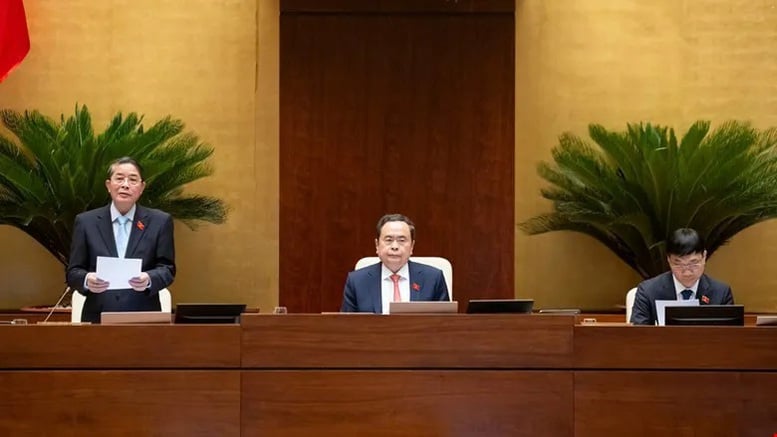
The National Assembly held a plenary session in the hall on the morning of May 13.
Decentralization, delegation of authority, simplification of administrative procedures
The report on explanation, reception and revision of the draft Law on Management and Investment of State Capital in Enterprises of the Standing Committee of the National Assembly (SCNA) said that in the process of receiving, explaining and revising the draft Law, the agencies thoroughly grasped and seriously implemented the direction of the General Secretary and the Chairman of the National Assembly on innovation in thinking in law-making, Regulation No. 178-QD/TW dated June 27, 2024 of the Politburo on controlling power, preventing and combating corruption and negativity in law-making work.
The draft Law has ensured compliance with the 2013 Constitution, fully institutionalized the viewpoints and policies of the Party and State on innovation, restructuring and development of state-owned enterprises; promptly institutionalized Resolution No. 57-NQ/TW, Resolution No. 18-NQ/TW, Conclusion No. 127-KL/TW and reflected in the articles and clauses of the draft Law.
Regarding decentralization, delegation of power, and simplification of administrative procedures, the Standing Committee of the National Assembly has directed the review and revision of regulations clearly defining the tasks and powers of the Government ; the Board of Members, the Chairman of the company at enterprises in which the State holds 100% of the charter capital; the representative of the State capital; and the representative of the enterprise's capital.
The draft Law has been carefully reviewed and studied, absorbing the maximum opinions of National Assembly deputies. After absorbing and revising, the draft Law consists of 8 Chapters and 59 Articles, 3 Articles less than the draft Law submitted to the National Assembly at the 8th Session.
Regarding the subjects of application, some opinions suggest researching and regulating the subjects of application to include enterprises with state capital directly invested from less than 50% of charter capital.
In response to the opinions of National Assembly deputies, the National Assembly Standing Committee directed the review and supplementation of regulations to manage enterprises with state capital directly invested from less than 50% of charter capital as "Representative of state capital invested in joint stock companies and two-member limited liability companies".
In addition, the draft Law has revised and completed the regulations on representatives of state capital in joint stock companies and limited liability companies with two or more members, ensuring coverage of the management and investment of state capital in terms of investment capital in enterprises with 50% or less state capital according to the principle that wherever there is state capital, there must be state management with appropriate measures and levels.
Regarding the principles of state capital investment management in enterprises, many opinions suggest clarifying the regulation "State capital after being invested in an enterprise is determined to be the assets and capital of the enterprise's legal entity".
The Standing Committee of the National Assembly believes that the provision of the above content in the draft Law may cause problems and difficulties such as: The Law on Enterprises does not specifically stipulate that contributed capital invested in an enterprise is the property and capital of the legal entity of the enterprise. If this principle is added, it may conflict with the concept of state capital in an enterprise stipulated in Clause 6, Article 3 of the draft Law.
Enterprises carry out social security tasks
The subjects of application of the draft Law are enterprises in which the State holds more than 50% of the charter capital and less than 50% of the charter capital, so in addition to the State capital invested in the enterprise, there is also capital from other capital contributors/shareholders. The provisions in the draft Law have ensured the principle that enterprises are proactive and autonomous in using capital and assets for production and business activities according to the decentralization of the State ownership representative. Therefore, the Standing Committee of the National Assembly proposed that the National Assembly not stipulate this content in the draft Law.
Regarding the scope of state capital investment in enterprises, many opinions suggested continuing to review and ensure compliance with the spirit of the 13th Party Congress Documents and Resolution No. 12-NQ/TW, focusing on investing capital only in a number of state-owned enterprises operating in key, essential fields or fields in which other enterprises do not invest.
Institutionalizing the Party's policy and absorbing the opinions of National Assembly deputies, the National Assembly Standing Committee directed the review and regulation of the scope of state capital investment in enterprises, which are areas in which the state needs to invest capital to establish enterprises and invest additional state capital, including: Enterprises providing essential public products and services to society; enterprises directly serving national defense and security; enterprises operating in key areas of national defense and security; enterprises operating in the field of natural monopoly; enterprises developing science and technology, innovation, national digital transformation; applying high technology, making large investments, building key and important national infrastructure works, creating momentum for rapid development for other industries, fields and the economy; enterprises in key and essential fields of the economy.
Regarding capital mobilization and lending, some opinions suggested reviewing and adjusting regulations on capital mobilization of enterprises in the direction of increasing the initiative of enterprises and having a strict management and supervision mechanism; assigning enterprises to guarantee or lend capital to subsidiaries and assigning the Government to specify in detail the conditions for guarantee and lending capital. The Standing Committee of the National Assembly has accepted the opinions of National Assembly deputies and adjusted Article 18 of the draft Law.
This regulation has institutionalized the Party's guiding viewpoint, increased the autonomy and self-responsibility of enterprises, helped enterprises established or invested by enterprises to access reasonable capital sources, created resources for enterprises to develop; and shifted from pre-control to post-control.
In addition, taking into account the opinions of the National Assembly deputies, the Standing Committee of the National Assembly has directed the review and revision of regulations on enterprise evaluation and classification. Enterprise evaluation is based on the overall performance of the enterprise, taking into account the implementation of political, defense, security tasks, non-profit tasks, testing of new technologies, new business models and the impact of objective factors.
The draft Law also stipulates that enterprises perform social security tasks, which is the content to evaluate the level of completion of enterprises in performing state-assigned tasks and social responsibilities.
Hai Lien
Source: https://baochinhphu.vn/the-che-hoa-day-du-chu-truong-cua-dang-nha-nuoc-ve-doi-moi-co-cau-lai-va-phat-trien-doanh-nghiep-102250513110253932.htm



![[Photo] Nearly 3,000 students moved by stories about soldiers](https://vphoto.vietnam.vn/thumb/1200x675/vietnam/resource/IMAGE/2025/5/17/21da57c8241e42438b423eaa37215e0e)




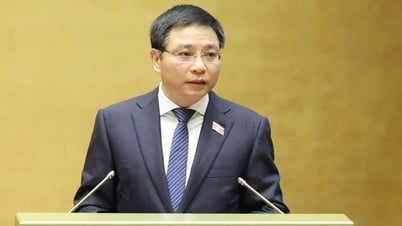
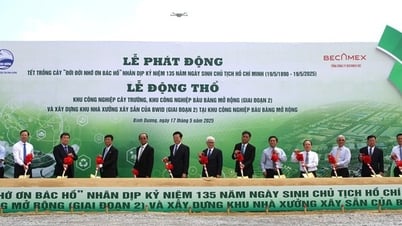





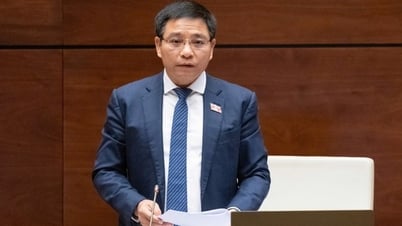




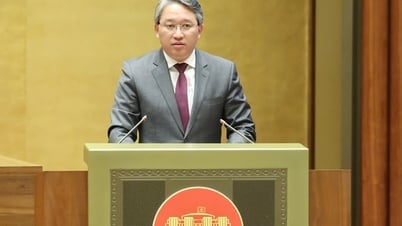
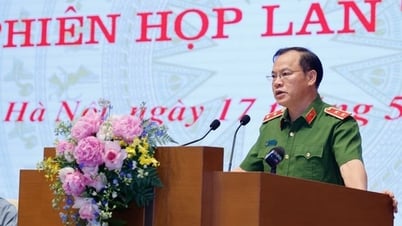


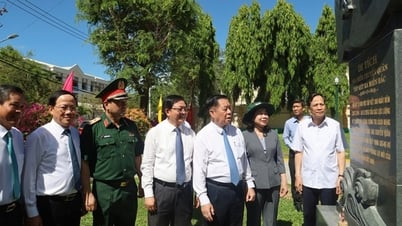
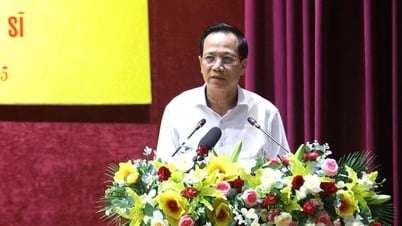
















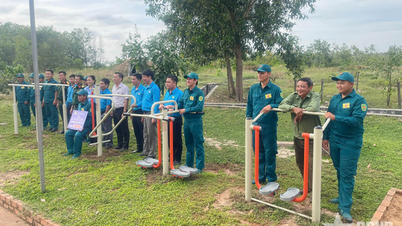



















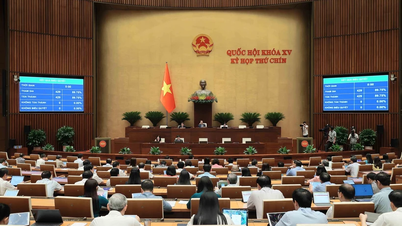













![[Infographic] Numbers about the 2025 High School Graduation Exam in Dong Thap Province](https://vphoto.vietnam.vn/thumb/402x226/vietnam/resource/IMAGE/2025/5/17/c6e481df97c94ff28d740cc2f26ebbdc)





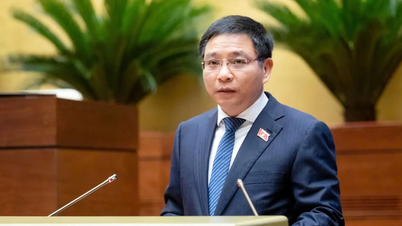













Comment (0)